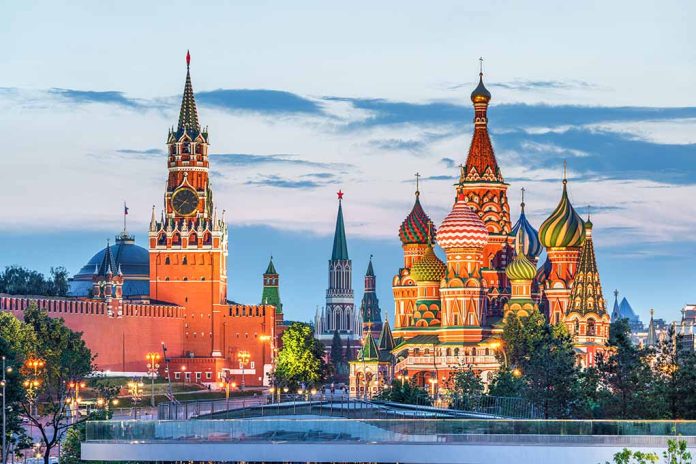
In a surprising development, reports indicate that Bashar al-Assad and his family have fled to Moscow, where they have been granted asylum, potentially reshaping Syrian politics and international alliances.
At a Glance
- Bashar al-Assad, President of Syria, has arrived in Russia.
- Assad and his family have been granted asylum by Russian authorities.
- The situation in Syria continues to develop, with further updates expected.
- Opposition forces have reportedly seized the Syrian capital, Damascus.
Bashar al-Assad’s Asylum in Moscow
Bashar al-Assad, the embattled President of Syria, has fled to Russia, where he and his family have been granted asylum. According to multiple sources, including Russian news agencies, Assad’s arrival in Moscow was confirmed and described as a humanitarian gesture. This development raises questions about Assad’s future role and the implications for Syrian politics and regional alliances
Russia’s decision to grant asylum to Assad reflects the strategic alliance between the two nations. Moscow has consistently supported Assad throughout Syria’s civil conflict, underscoring its influence in Middle Eastern affairs. This move indicates Russia’s continued interest in maintaining a strong foothold in the region, which may affect the dynamics of international diplomacy.
Repercussions on Syrian Politics
The granting of asylum to Assad by Russia comes amid significant changes in Syria. The Russian Foreign Ministry has announced that Assad has stepped down and left Syria. Reports from opposition forces indicate that they have seized the capital, Damascus, suggesting a power vacuum and potential shifts in governance. The end of Assad’s 24-year rule could open the door to negotiations or chaotic transition, impacting Syria’s future trajectory.
This transition raises questions about how remaining Syrian power structures will respond and whether new factions will emerge as power brokers. Opposition groups may view this as an opportunity to assert themselves, potentially leading to intensified negotiations or conflicts with Assad loyalists.
'Syria's Bashar al-Assad and family have received political asylum from the Kremlin for humanitarian reasons with Russia's officials in contact with representatives of the opposition', reports Al Jazeera's Yulia Shapovalova from Moscow.
🟥 Read report: https://t.co/hFTf1tWetj pic.twitter.com/NVMEkAWGTH
— Al Jazeera English (@AJEnglish) December 8, 2024
International Alliances: A New Chapter
Assad’s relocation signals a new chapter in international dynamics, particularly concerning Russia’s involvement in the Middle East. By granting asylum, Russia solidifies its strategic influence, possibly prompting other global powers to reconsider their military and diplomatic strategies. Countries like the United States and allies in Europe may reassess their approaches to Middle Eastern politics, especially regarding conflict resolution and aid.
While Assad’s asylum may temporarily stabilize certain aspects, it also introduces uncertainties about alliances and power balances. Observers will closely watch for further developments and the impact on regional stability, as this move might influence broader Middle Eastern political landscapes.
Sources
1. Syria war updates: Opposition grants soldiers amnesty after al-Assad’s fall














